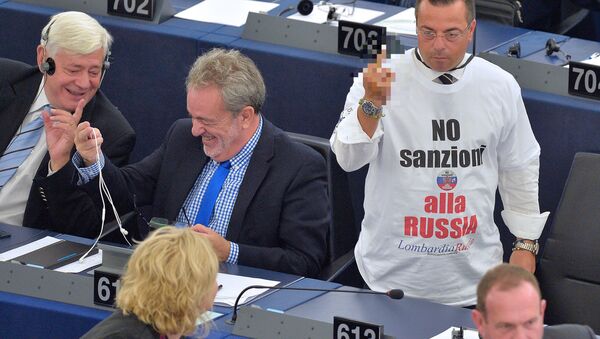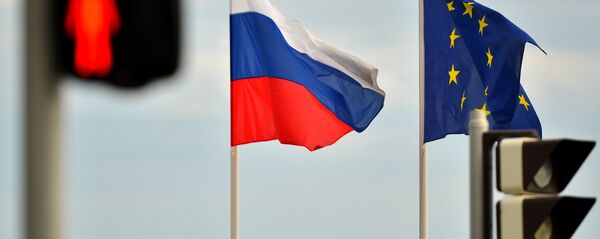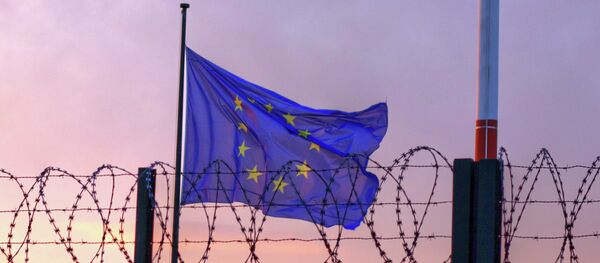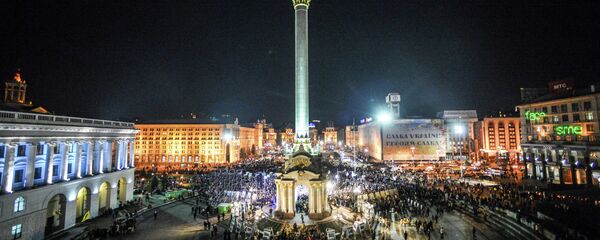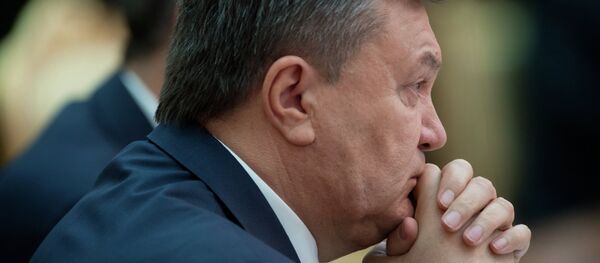However, not everything is rosy in the European garden and the upcoming debate over the extension of broader economic sanctions against Russia is triggering controversy among the EU policymakers.
"While the latest sanctions decisions came without major debate, that isn't expected to be the case for the bloc's economic sanctions on Russia, which have helped drive the country into a recession. With violence somewhat lower in eastern Ukraine and the Kiev government facing growing troubles at home, a number of EU governments have said they would like to see the economic sanctions reconsidered," Laurence Norman of Wall Street Journal reports.
Remarkably, on October 8, 2015 in Passau, Germany, Juncker called for what many experts perceived as throwing in the towel.
"We need to create a relationship with Russia that will leave future generations a map of Europe and a European continent where life is good. That is why we need to strive for a more appropriate relationship with Russia. It is not very sexy, but that is how it must be. We cannot continue down the same path," Junker noted in his official speech.
"Perhaps we old Europeans will have to be slightly more modest when we act on the world stage. Europe is the smallest continent: the European Union covers only 5.5 million square kilometers. Russia, one of our nearest neighbors, stretches across 17.5 million square kilometers," he continued.
What lies beneath Juncker's unusual rhetoric?
The crux of the matter is that the EU "is not in good shape," as the EU Commission President admitted in his speech.
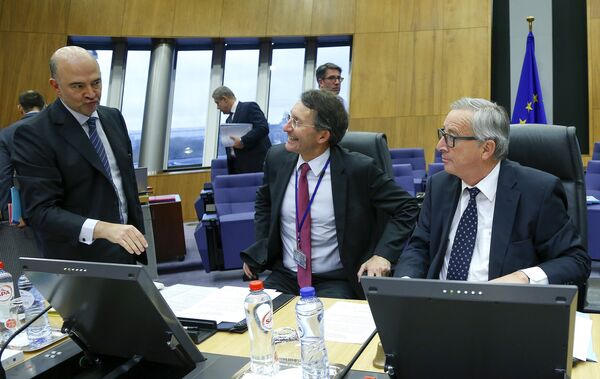
It would be an exaggeration to say that the reason for the EU's problems is Europe's sanction policy against Russia and Moscow's countermeasures. However, the EU sanctions policy is adding numerous insults to European economic injuries.
In October 2015 EU Parliament's think tank reported that since 2014 trade volume between the European Union and Russia has decreased. "Although the overall impact on the EU economy has been rather limited, certain sectors and countries are more significantly affected," the report stated, adding that "the most visible direct effect is the substantial fall in EU agri-food exports."
Some European experts argued that the impact of anti-Russian sanctions policy on the EU is "much ado about very little." Daniel Gros and Federica Mustilli of the Centre for European Policy Studies (CEPS) even went so far as to claim that "one should not count the reduction in sales as a loss."
Regardless of these speculations, concerns continue to grow in European capitals.
"Since day one, maintaining unity on Russian sanctions hasn't been easy, according to US and EU officials. While countries like Poland and the UK want a tougher line against Russia, some governments want the sanctions to end soon," Joseph J. Schatz of Politico noted in his December article.
Meanwhile, it turns out that Washington made its European partners to bear the whole burden of sanctions policy against Russia.
"The US response? We feel your pain," Schatz noted.
"If Ukraine doesn't come through with the reforms linked to the Minsk peace process, it will be very difficult for Europe to continue united in support for sanctions against Russia," Denmark's Foreign Minister Kristian Jensen told Reuters in early February 2016.
In this light, the question arises, whether extension of broader economic sanctions makes any sense at all.
